Potlucks at my church are a big deal. We all get together to eat and talk. I like to mix and mingle while others are getting their meal, since the line is always too long anyway. I usually meet three or four new people that I haven’t been able to talk to yet. I try to get around to talk to the oldest couple in the church, because how often do you get to talk to someone who is 100 years old and still getting around like a young whippersnapper? Then, I make my way over to the kids’ table and ask them how things are going. We chat for a few minutes, and I head to another table, and so on.
You probably know how these functions go. From my description, you’d probably think I’m a social butterfly, but you’d be wrong. I’m actually quite an introvert, but I do enjoy small doses of people, especially my church family, so it’s important to me that I make the rounds every chance I get.
No one asks me where I learned how to chat with so many people. I doubt that anyone really cares, to be quite honest. That’s why it’s so interesting that nowadays, some people are rather opinionated about socialization. It’s defined as “the activity of mixing socially with others, and the process of learning to behave in a way that is acceptable to society.” Unfortunately, socialization has a reputation of being attainable only in a public school setting.
You know what I mean...surely you’ve heard the comments and questions from well-meaning acquaintances and even a few strangers….
- Now, you know that homeschoolers have socialization issues.
- What about socialization?
- Don’t you think he/she will be lonely?
- Aren’t you concerned that homeschooling will hurt your child?
- Aren’t you worried about your child being weird?
Socialization is one of the leading concerns about homeschooling. Instead of support and encouragement, many families who choose to homeschool are bombarded with an interrogation of sorts.
I still remember the summer when we first decided to homeschool our children. It was already a tough decision to make, and on top of that, a handful of our fellow church members at the time felt compelled to tell us about “all the socialization issues that homeschoolers had.” It was always a story about a cousin’s best friend’s daughter’s neighbor who was homeschooled and grew up to be socially awkward.
I remember feeling so defeated before we had even started our first lessons! Thankfully, I quickly realized that most of these stories were pretty outlandish and probably weren’t actually accurate. I also realized that I probably should avoid conversations with total strangers about my children’s education. Lesson learned!
Ten years after those early conversations, I’ve found myself to be much more resilient and gracious with these curious outsiders. Nowadays, I am more prone to patiently answer genuine questions and do my part to dispel rumors about homeschooling. I’m also grateful that I now have four well-adjusted, delightful children who are products of homeschooling and who can give an excellent representation of the benefits of homeschooling.
Today, I want to put your mind at ease and give you the encouragement that you might just need. In this post, I’ll break down all the common misconceptions about homeschooling socialization.
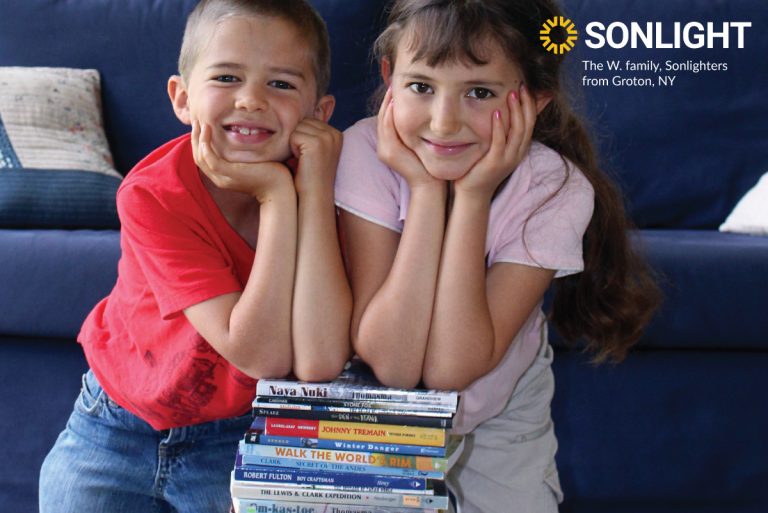
How Do Homeschoolers Socialize?
Quite well, actually.
I think it’s interesting to explore the expectation of socialization first. When those well-meaning friends put in their two cents, what they are really drawing from is a common misconception that socialization only happens in public school. They are misled to believe that it can’t happen anywhere else.
So let’s look at the common expectation of public school socializing. In a typical setting, children are expected to socialize with peers either their exact age or very close to their exact age. There is very minimal interaction with younger or older children. While public schoolers are around some adults every day, there is very little opportunity to truly socialize because all of their adult relationships are authoritarian in position.
Time is also a limiting factor on how public schoolers socialize. Their socialization is scheduled into the day and tends to end very abruptly instead of naturally. Finally, many of these social situations involve a great number of students. Therefore, if a child has a problem with another child, they may simply find someone else to play with instead of having to work out the disagreement.
To be clear, I’m not against public schools, but I would say that socialization in public school is anything but intentional, and I have to ask, is it really the model we want to hold up as the gold standard?
On the other hand, homeschool socialization is very intentional. It simply must be. As homeschoolers, we do need to consider ways to connect our children to their communities. However, the answer to how we do that is really quite simple: Go through life as usual and let your children come along. That's how homeschooling works best!
Homeschoolers have the great benefit of having a front-row seat to adult life. Every homeschooled child I know spends a large amount of time with their parents. What better way to learn how to socialize than watching Mom and Dad go about their everyday life?
Of course, moms and dads certainly need to be mindful of their little shadows, always taking opportunities to introduce them to people and helping them to find their voice in daily conversation.
However, so much of socialization happens naturally.
- When we are in the grocery store, my kids will help entertain a younger child in the cart checking out in front of us.
- They will hold conversations with the adults they meet throughout their day.
- They will hear us on the phone sorting out billing questions and scheduling repairs to our homes.
These are all parts of socialization which many people don’t consider.
Of course, all children need socialization with peers as well, but there are so many opportunities for this.
- Church is a great place for children to find life-long friends to invite over for playdates.
- Athletics can be a fantastic way to get our children out in the community.
- Homeschool co-ops are popping up more and more and can be an excellent way to help children socialize with peers.
Of course, you should know that you don’t have to do all these things! Pick one when they are young, and as they get older, you can always add or take away activities. There is no one right formula. Every child is different. However, as you can see, socialization in homeschools is not that difficult after all.
Does Homeschooling Affect Socialization?
Of course homeschooling affects socialization. Homeschooling is a lifestyle. Therefore, it affects every facet of one’s life. However, we should ask if homeschooling negatively affects socialization? No, not in itself.
Attentive parents can easily make sure that children have ample opportunities to socialize among both their peer groups and with adults or younger children. Intentional parents will actively look for ways to get their child plugged into their community. Simply be intentional about bringing in those opportunities for your child to explore social situations and engage with others outside the home.
Are Homeschoolers Socially Awkward?
No, homeschoolers are not socially awkward. I can say that with confidence because this question speaks in generalizations. Homeschooling does not automatically produce socially awkward graduates. We must remember that our educational choices do not make a child socially competent or socially awkward. Rather, it is the culmination of life experiences that teach them how to handle themselves in social situations. Make sure that your child has the experiences he or she needs to feel confident in society.
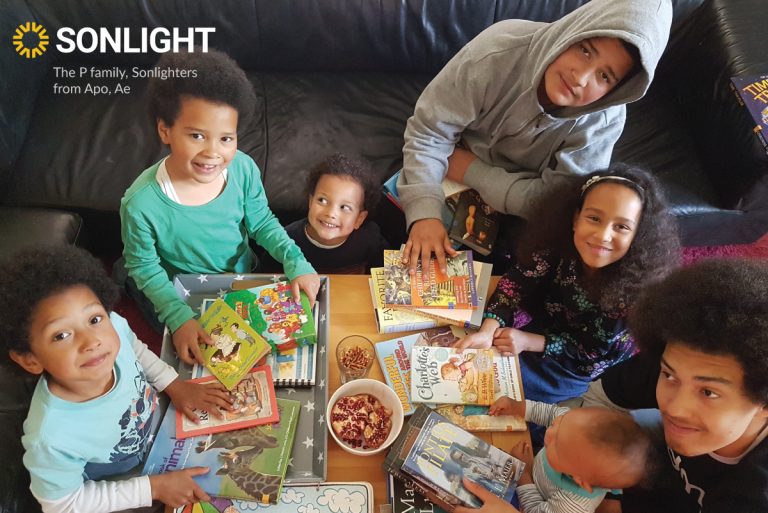
Do Homeschool Kids Need Socialization?
I am always amazed when I visit various fast food restaurants around town. They are all so different, even though they basically provide the same service: fast food. One of the fast-food restaurants in my area is a train wreck. They are incredibly slow, rude, they are inconsiderate of the customer’s time, they rarely get your order right, and it’s usually the customer’s fault.
However, another fast food restaurant in our area is a breath of fresh air. They are perfectly pleasant, almost always getting your order perfect, and always fast no matter how many people they are serving. So, what’s the difference between the two restaurants?
Training.
One little word makes all the difference between the two food establishments. One manager clearly trains his or her workers well and it shows. The other is obviously mismanaged. Good restaurants go through scenarios that look something like this: If x happens, then do y.
All children, not just homeschoolers, need training as well. Most of us are not born knowing exactly what to do in every situation that arises. We either learn as we go, or we are blessed to have someone who cares enough to prepare us for those situations early. Every child needs socialization training and opportunities to practice it. It is not just a “homeschool thing.”
What Do Psychologists Say About Homeschooling?
There are plenty of studies on homeschooling and socialization to be found and dissected. However, in terms of socialization, I found this study by Richard G. Medlin to be quite fascinating. Medlin concludes that most studies find no negative psychological effects when comparing homeschooled children and public schooled children on the topic of socialization. In fact, in one study conducted in 1998 by R.S. Galloway which followed a group of homeschooled students and a group of public schooled students into college, Galloway concluded that homeschool students were “the leaders on campus” after finding evidence that these homeschooled students not only did well with socialization in general, but also took on much of the school’s student body leadership opportunities and responsibilities.
There are several pieces of homeschool socialization research to explore. In study after study, homeschoolers are found to be socially skilled and a benefit to society, using their out-of-the-box thinking skills and knowledge for the betterment of their community.
Are Homeschoolers Lonely?
When I was growing up, I lived on the top of a mountain where my dad worked, and it was a half-hour away from town. The only children who ever came around were my neighbors’ grandchildren who we occasionally played with. Otherwise, we were basically alone on top of Petit Jean Mountain. There were definitely times that I was lonely, but now, as an adult, I can see how those lonely days were a tremendous blessing.
We tend to think of loneliness as negative, when actually a lot of great qualities can be born from occasional lonely days. For example, I am a deep thinker. I am incredibly creative. I think outside the box. I don’t mind being alone. I can occupy myself; I am never bored. I am very empathetic toward others.
At times, homeschooling can be lonely, especially if you live in a rural area. There is a little tinge of sadness when the members of a community gather together to celebrate a football game, a graduation, or an awards assembly, and you weren’t invited.
Knowing that homeschooling can make you feel like the odd duck is why so many homeschoolers make a concerted effort to get out and make connections in their community.
While we’re considering loneliness, let’s be sure to reject the idea that public school isn’t lonely.
I’ve known plenty of children who have shared how lonely they feel at school. Loneliness is not a homeschool problem. It is a societal problem that spans all ages and all educational paths. We need to be proactive with our children, and make sure to connect them to meaningful relationships no matter their educational experience.
Remember that there are plenty of ways to get connected in your community outside of the public school system. Talk with your child about his or her interests and pursue them. Let them play athletics or attend summer camps. Encourage them to get involved in 4-H or art classes. Get plugged into your local co-op.
There are plenty of ways to make homeschooling less lonely. But remember that a few lonely days are not traumatic events for children. Instead, they can be the catalyst for positive character traits, resourcefulness, and creativity.
As a homeschool parent, you may be tempted to fill your days to the brim with socializing activities and events as an overreaction to the socialization question. But don’t be afraid to allow lonely space each week. It will encourage your children to be creative and to think for themselves. These are great qualities that should be cultivated, not feared.
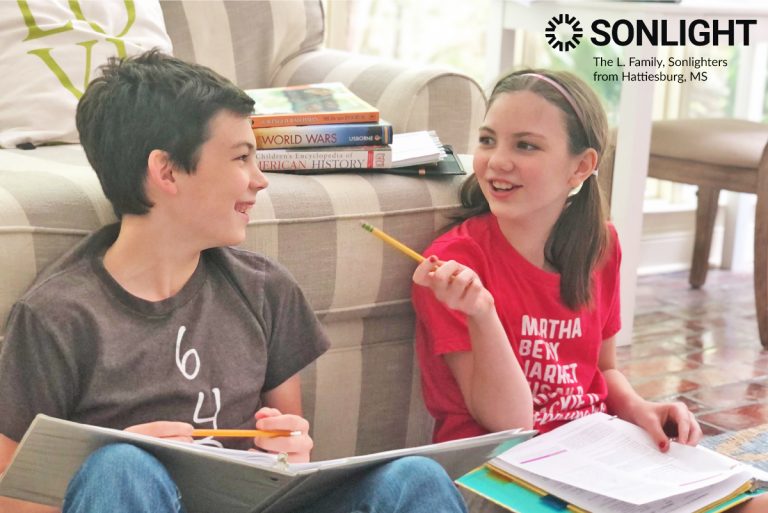
Are Homeschooled Students at a Disadvantage Socially?
I would actually argue that homeschooled students have a social advantage. The vast majority of children don’t have multi-generational opportunities for socializing as homeschooled children do. I believe that exposure to a wide variety of ages and people of various backgrounds makes for a wonderfully diverse social experience, and I believe that is the experience that many homeschoolers receive every day.
I think it’s much harder for students who are mostly around their own peer group to learn to socialize well outside of that peer group. Interestingly enough, when a child grows out of their student career, they will need the social skill set which allows them to socialize outside of their age group more than the skill set that allows them to socialize within their age group. Therefore, doesn’t it make sense to think of a complete socialization experience in terms of its depth rather than its width?
Wouldn’t it be more beneficial to immerse our children in an environment that’s rich with experiences across age groups and interests? Homeschooled students are able to do things (even on weekdays!) like
- use the amenities at the public library
- visit nursing homes
- volunteer at their church during the weekdays.
- play with neighbor children
- attend church events
All of these events together make a lovely social experience. Disadvantage? Absolutely not.
Tune in for a research-based presentation about the effects of homeschooling on socialization with panelists Daniel Hamlin, Professor at University of Oklahoma and David Sikkink, Professor at University of Notre Dame, along with commentator Michael McShane, Director of National Research at EdChoice.
Will Homeschooling Hurt My Child?
Homeschooling, in and of itself, will not hurt your child; however, homeschooling does place the education, as well as the socialization, of your child in your hands. This is a beautiful, God-given privilege and responsibility.
If our purpose to homeschool is to completely shut out the world and protect our child from ever getting hurt, then yes, homeschooling could hurt your child in the future. However, if your purpose is to give your child a vibrant educational and social experience, then I can tell you that homeschooling will absolutely not hurt your child.
Because we homeschool does not mean that we shelter our child from the world. It doesn’t mean that we orchestrate all their social engagements. It means that our children do life with us, and we make a conscious effort to instruct them in life on a daily basis. If the parent does this, a child will certainly not find themselves unprepared for society in the future. Your homeschooled child, on the contrary, will be an asset to businesses and will be leaders in their churches and communities.
How to Socialize Your Homeschooled Child
All parents, not just homeschoolers, should be intentional about preparing their children for social situations that will arise. For example, you are attending a recital. You arrive and a few minutes into the first song, your child begins to misbehave terribly. Is this a result of educational choices that the parents have made? Of course not! This is simply due to the fact that the child doesn’t know what to do in that particular situation.
That’s why my husband and I always recommend role-play. If you know that a recital is coming up, you know that you will need to do some prep work. Begin by explaining where you are going and what you will do. Tell your child that you will be hearing lovely music and let them know to watch carefully because when the musician is finished, everyone claps. Then, act it out. Practice. Your child will feel confident during the recital and will be less likely to misbehave because he or she knows what’s coming next and they know what is expected of them.
Much like attending a recital, socialization is the same. Children must be taught and prepared for these situations. From the time our children were very young, we role-played all kinds of scenarios: how to act during a church service or recital, how to meet people, how to have small talk, how to use manners….the list goes on and on.
These role-play scenarios can be very simple and take little to no prep time. Decide on a social skill that you want to work on with your child. For example, you might choose introductions. Sit down and explain what to do and model it yourself. Then, have each child try it out as well. Give praise and tips where needed, always in an encouraging, lighthearted manner.
If you really want to make memorable teaching moments, find a feather boa and a fabulous hat at the dollar store, and introduce yourself as Mrs. Persephone Berryworth. Be sure to speak with your funniest accent. It’s excellent practice and it’s super fun too! Your kids will always remember their role-play sessions with you!
Of course, acting out scenarios is not only for young children. Teens can practice their driving test or college interviews through role-playing too. All children need this type of social training, and it is time well spent to practice before these situations arise.
The Final Verdict on Homeschooling and Socialization Issues
There is no substantial evidence that homeschooling hurts children socially. Raising a well-rounded child is so much more involved than simply choosing an educational path for your child. Socialization was always intended to be a family responsibility.
We must be careful not to hand over that responsibility to someone else. Even a public school family should be intentionally socializing their children, making sure that they have plenty of opportunities to meet a wide variety of interesting people.
Ultimately, socialization is not a question of what schooling method you chose. It is a question of how your child will relate and impact the world in the future. All parents must be intentional about this important area of child development.
Rest assured, though, homeschooling is a fantastic way to socialize your child. While homeschooling doesn’t guarantee to produce a social butterfly, neither does public school. It is ultimately a culmination of a child’s experiences and values that makes them who they are.
Don’t allow the socialization issue to hold you back from home education. Don’t buy into the homeschooling socialization myth. A wonderful world of socializing awaits! Go for it!

Join the Sonlight Connections Facebook group and download the Sonlight app to stay connected with other homeschoolers.


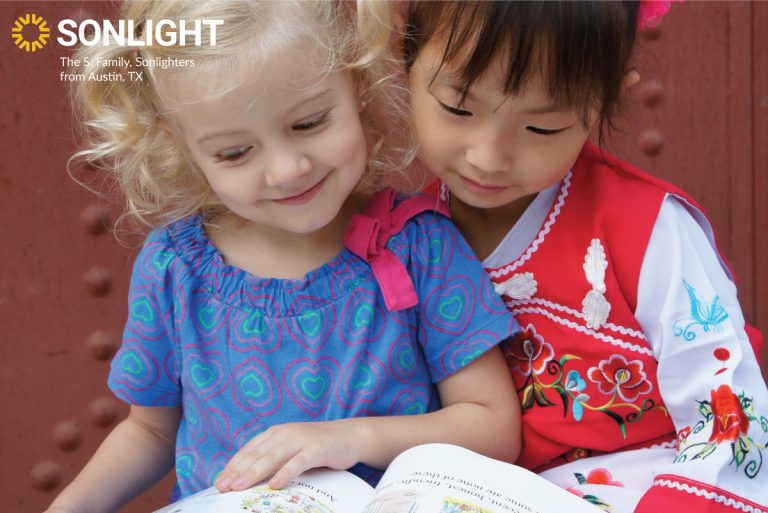
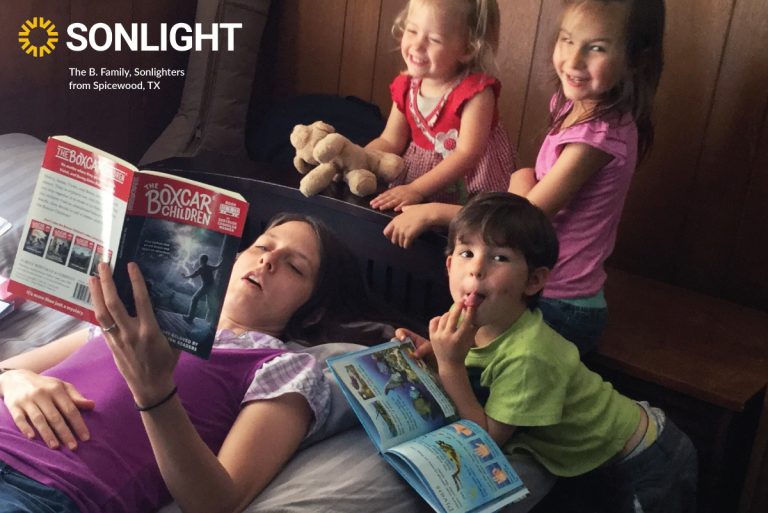






Well said!! Bravo!
Thank you so much! This is exactly what I needed to hear. We have decided to homeschool our youngest two children after already being home last year. The socialization and awkwardness question has been the ones that loom in my mind. Thank you for addressing that and giving a positive outlook on both of those things and more.
"Knowing that homeschooling can make you feel like the odd duck is why so many homeschoolers make a concerted effort to get out and make connections in their community. "
Sure, but that same feeling can also lead other homeschooled kids to discouragement and disillusionment as they learn how *exhausting* it can be to fulfill daily social activities when you don't share very much cultural literacy with most of those around you. I find that a lot of homeschool parents underestimate just how much they benefit on a daily basis from the cultural literacy they gained through public education. That doesn't mean homeschooling can't be done well -- it has the potential to be very beneficial for some families. I just hope that those who are concerned about socialization will seek out and listen to stories from homeschool graduates, and ask them about how well they think they get along socially -- it may paint a different picture than parents who haven't lived it.